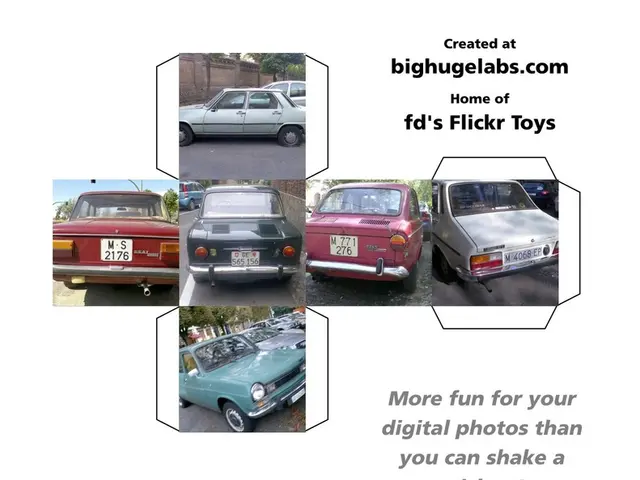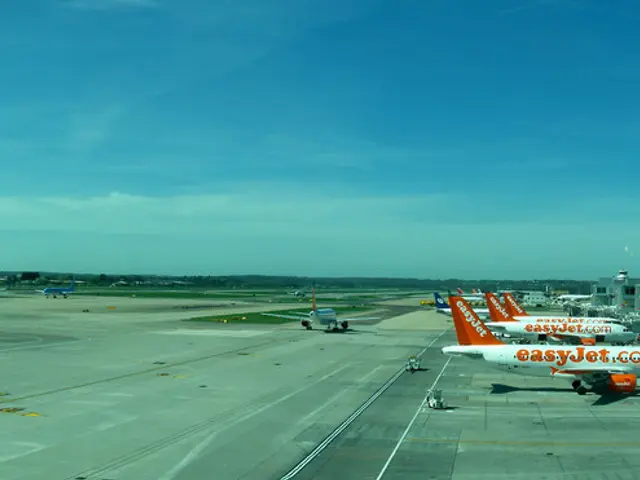Goodbye Ol' Stampers: Bid Adieu to those Punch Devices - First NRW Transport Association Takes the Lead
Shutdown of Entwerters Equipment - Initiative by NRW Transport Federation Recycling Entwerters' Devices - Designers Meet Their Demise - Demise of the First Transport Association in North Rhine-Westphalia
Hey there! It's time to say so long to mechanical ticket punchers in buses and trams across various regions. Westfalentarif, one of the four transport associations in North Rhine-Westphalia, is leading the charge with the elimination of these traditional stamping devices in public local transport, but this doesn't stop at the borders of NRW.
Westfalentarif will no longer offer tickets that need a stamp from August 1st. Beginning November 1st, the punches in buses, trains, and at train stations will be shut down gradually, and subsequently, deactivated. Until this date, passengers can still utilize tickets with a 'punching field.' After that, they'll no longer be valid.
VRR plans to embrace cashless payments
The abolition of paper tickets and subsequently the removal of punches is part of the masterplan by the Verkehrsverbund Rhein-Ruhr (VRR), yet no specific schedule or plan has been set at present. Consequently, it will still be possible to buy and stamp paper tickets in the VRR.
Initially, the goal is to enable cashless payment options in addition to the existing ones in all vehicles across VRR. The gradual transition will be completed by early 2027 at all VRR transport companies, and in the long run, ticket sales in vehicles will be cashless only.
Mobile payment methods like Google Pay or Apple Pay, along with debit and credit cards, can be utilized for ticket payment in most regions with existing paperless ticket systems. During inspections, there's no hiccup in proving travel authorization.
Rhein-Sieg remains resilient
In the Verkehrsverbund Rhein-Sieg (VRS), tickets still requiring stamps will continue to be sold. A spokesperson revealed that the future approach is currently under discussion in the context of the planned tariff reform between VRS and Aachener Verkehrsverbund AVV, set to be implemented next year.
An AVV spokesperson shared, "We are headed in this direction in the long term as well." In the Städteregion Aachen, the bus company Aseag has already moved away from traditional stamped tickets and won't install new punches. However, the existing punches in ASEAG's older vehicles won't be dismantled.
In the Aachener Verkehrsverbund region, WestVerkehr in the Heinsberg district and Rurtalbus in the Düren district still offer stamped tickets. The Zweckverband go.Rheinland also still provides punches at train stations.
Westfalentarif eager for cost savings and increased clarity
In Westfalentarif, tickets will only have validity from the time of purchase or fixed start dates and times from August onwards. For occasional travelers, several bus and train travel options are made available, including the smartphone tariff eezy.nrw, the daily ticket24, and the single ticket without a stamping field. These tickets can be purchased through ticket machines, customer centers, in buses and trains, online, and via app.
Westfalentarif anticipates savings due to the elimination of labor-intensive validator maintenance. The "tariff jungle" will become less confusing for passengers with fewer paper tickets in circulation. In the transition area to adjacent transport associations, validators at train stations will remain. The multi-journey ticket and the individual ticket with the so-called stamping field will be abolished in many places, except in Bocholt, Unna, and Paderborn.
- As the transportation industry undergoes digital transformation in North Rhine-Westphalia, vocational training programs will likely receive increased focus with the Finance department, ensuring skilled personnel are prepared for managing cashless payments and the transition to paperless tickets.
- With the phasing out of traditional stamping devices in the Community policy of Westfalentarif, various industries might find value in vocational training programs centered on technology, as understanding cashless payment systems and mobile payment methods, such as Google Pay or Apple Pay, becomes crucial for businesses in the public transport sector.








